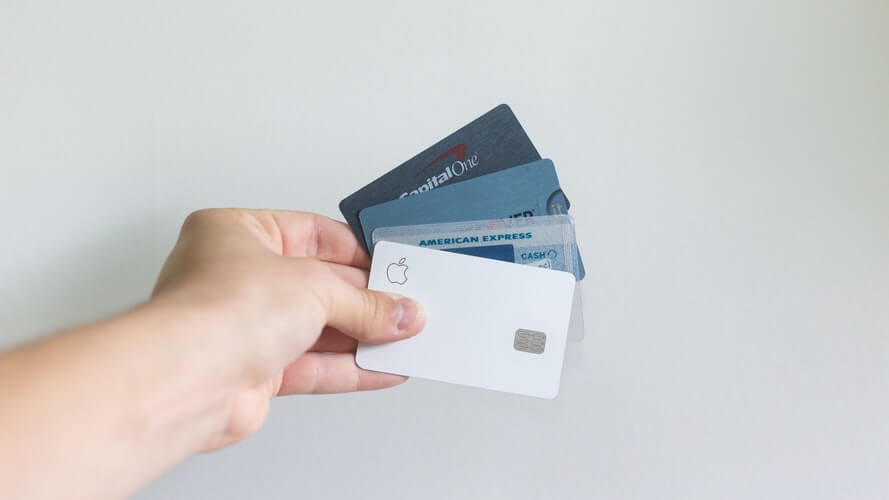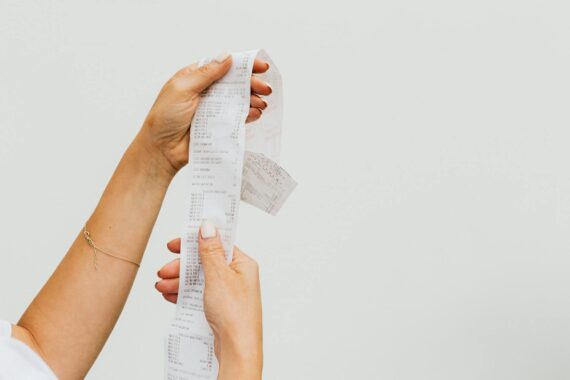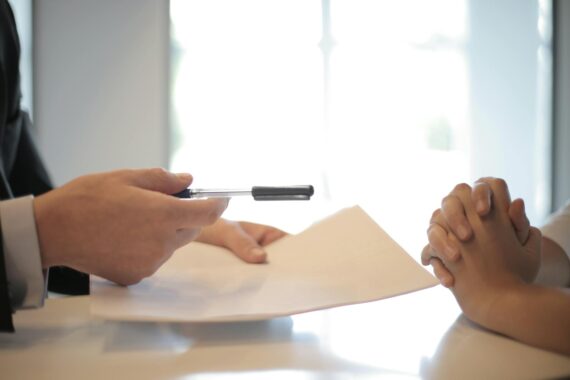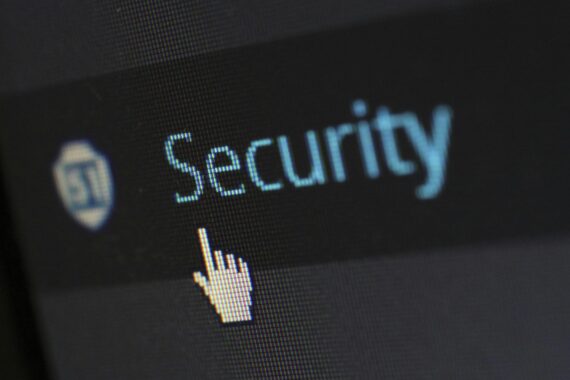Are you dissatisfied with an item you’ve just bought, or you haven’t received the goods you’ve ordered? Or maybe you believe someone has misused your credit card? If any of these situations is something you’re dealing with, then you should know how to dispute a charge on a debit card. Here is how you can do it and what your consumer rights are when it comes to getting your money back.
Can I Dispute a Charge on My Debit Card?
Disputing a transaction on your debit card is possible. However, there are some requirements you’ll have to meet first. The first thing you should know is that there is a slight difference between disputing a transaction on these two types of cards.
The reason for this difference is that there are various ways how a transaction can be made, and, more importantly, because debit cards don’t have the same consumer protection like credit cards do. That’s why disputing a debit plastic payment can be a little bit more challenging.
Transactions Done With Debit Cards Are Approved Faster, and This Is Why Disputes Take Longer
The main advantage of credit cards is that they allow you to borrow money. However, every transaction done by credit card requires approval from a bank that there is enough money to cover this purchase. Although the approval process happens within seconds, there is a long and complex process behind it. More importantly, once the requested payment has been approved, they don’t withdraw the sum right away, they only reserve it. And this is exactly what gives you greater options when it comes to disputing charges on credit cards.
On the other hand, payments done with debit cards are executed almost immediately. In other words, the previously deposited funds are automatically withdrawn from your account and transferred to the merchant’s account. So, what happens if you dispute a charge on your debit card?
Firstly, the bank has to decide whether your request is justified or not. If they find your request meets their basic requirements, the second step is to provide you with a form to fill out and inform the merchant through their acquiring bank.
Once the merchant receives a request and decides to accept it, the money will be withdrawn from the merchant’s account and then transferred back to yours. Since the process works this way, it becomes perfectly clear why disputing a transaction is quite a complex process.

The Process of Disputing a Charge on Debit Cards Explained
Before you file a complaint, you should know there are only a few cases where this request will be approved. Here are situations in which you as a customer have the right to ask for your money back:
- You’ve canceled the service you booked before, but you’re still being charged for it. For instance, if you’ve booked the room through an online booking engine, canceled it within their cancellation period, but you’re still charged, you have every right to complain.
- You’ve bought items and returned them to the vendor, but the money was never refunded.
- There was a billing error, and you were charged twice or the wrong amount.
- The service or the product was not as described.
- Fraudulent charges, or situations where the executed transaction was not authorized by the cardholder.
Before You Request the Money Back From the Bank, Try to Resolve the Problem With the Merchant
If any of the described situations are applicable to your case, then the most effective solution might be to resolve the problem with the merchant themselves. This is especially advisable to do in case of canceled services or unauthorized usage of your funds. However, if you see that the vendor is not willing to consider the problem, then it is the right time to take the issue to the next level.
Contact Your Bank to Request a Chargeback
Aside from sending a dispute letter to your credit card company (a sample of this letter is easily findable at the Federal Trade Commission Website), there are other documents you’ll have to submit.
The bank will require you to provide all the evidence you have to prove that you’ve already tried to resolve the problem with the merchant. This could entail:
- A receipt or an invoice,
- The merchant’s terms and conditions,
- Evidence of the merchant rejecting your complaint in written form, like a letter or an email.
How Long Do You Have to Dispute a Charge on Your Debit Card?
The detail you should definitely take into consideration is the time limit prescribed for disputing. Depending on the type of issue, the time limit will differ, as well as the process of resolving the whole case.
In general, you’ll have up to 60 days to file a complaint from the moment you receive the statement. However, it is highly recommended to initiate the process as soon as possible because you’ll have a better chance of succeeding if you act fast.
| Type of Issue | Time Limit | What Should You Do? |
|---|---|---|
| Fraudulent charges | Unlimited | Call your issuer directly |
| Billing error | 60 days | Follow the consumer protocols |
| Bad, or service not rendered | 60 days | Follow the consumer protocols |
Useful tip: Always check the merchant ID in your statement, especially if you usually purchase online and notice a transaction that looks unfamiliar. This could help you spot fraudulent activity faster.
How Long Does a Bank Take to Resolve Disputes?
Once you file a complaint, the bank is obliged to respond to your request within the next 10 business days. In case they are not capable of solving the case within those 10 days, the whole process will be extended to up to 45 days. Moreover, you’ll be granted so-called “provisional credit” of the disputed amount. Still, keep in mind that this “provisional credit” will be reversed from your account if there are no errors.
For online and point-of-sale payments made abroad, this period could be extended to up to 90 days. After the bank closes its investigation and makes a decision, it is obliged to provide you with a written report in the next three days where all the details will be presented.
How to Request Chargebacks With the Largest Card Issuers in the US?
According to the latest research, there were 5.36 billion debit cards active at the end of 2018. According to the Federal Reserve Report, the value of all transactions made by the end of 2019 reached 3.1 billion dollars. All this data shows that debit cards are still one of the most favorite payment methods in America, both in present and non-present transactions.
Chase and Bank of America are among the top-five issuers in the US. For that reason, one of the most common questions customers ask is: how to dispute a charge on my debit card with those two banks in particular. Here are simple but effective explanations on how to properly do it!
How to Dispute a Charge on a Bank of America Debit Card?
Although the rules of disputes are usually defined with Consumers Rights prescribed by the Federal Trade Commission, all banks have the right to develop their own system to deal with those requests. BoA introduced disputes through its online and mobile banking system. Here is a detailed explanation in the video below on how the whole process works when you request the ask for back via online banking.
How to Dispute a Charge on a Debit Card With Chase?
So, how to dispute a charge on a Chase debit card? Similar to BoA, Chase also provides an online banking service to its clients, so whenever you want to request chargebacks you can easily do it online. You’ll sign in to your account and access your statement and transaction details.
The best thing when it comes to their system is that they note the merchant’s answer, so you can easily see the request’s progress. Of course, all clients are welcome to contact their customer service by calling 1-866-564-2262 and ask for further help.

Other Frequently Asked Questions Regarding Dispute Charges
Many consumers are puzzled when it comes to all the situations in which they can demand their money back. Here are the answers to the most common questions that will resolve all your dilemmas once and for all!
Can I Dispute a Debit Card Charge That I Willingly Paid For?
Yes, you can dispute a charge for all transactions you made willingly if the service was not rendered or the product was not as described. Just be careful to meet all the merchants’ requirements from the terms and conditions of use, and you’ll win this fight easily.
Can I Dispute a Charge on My Debit Card if I Was Scammed?
Absolutely yes! Whether someone hacked into your online account and stole the details or they made an unauthorized transaction, you have the right to file a complaint.
There are many ways how frauds are executed. One of the most successful ones is phishing, a process that misuses banks’ logos, databases, and email contacts, and requests customers’ personal information and passwords. If you fell victim to a phishing scam, make sure to contact the bank as soon as possible, explain the situation, and follow their further instructions. Also, this could help them warn other customers and avoid greater problems.

Dealing With Plastic Involves Much More Than Dealing With Payments
Plastic has definitely become the prevailing payment method all across the world. Its convenience of allowing customers to pay online or using credit card virtual terminals makes the credit card vs cash battle quite predictable. For the majority of American consumers, plastic is always a better solution than cash.
However, don’t forget that plastic stores bundles of your personal information that could be a potent field for fraudulent activities. That’s why you should pay special attention to following all the safety rules like strong passwords, keeping your PIN away from your wallet, and carefully choosing the business you’re buying from.
Luckily, when an inconvenient situation happens, banks have developed a system to protect their customers, and if you want to be fully protected, you should know how the whole system works. All this means that paying with plastic is much more than simply tapping or swiping, and once you master the principle of how the system works, your user experience will be even better!






